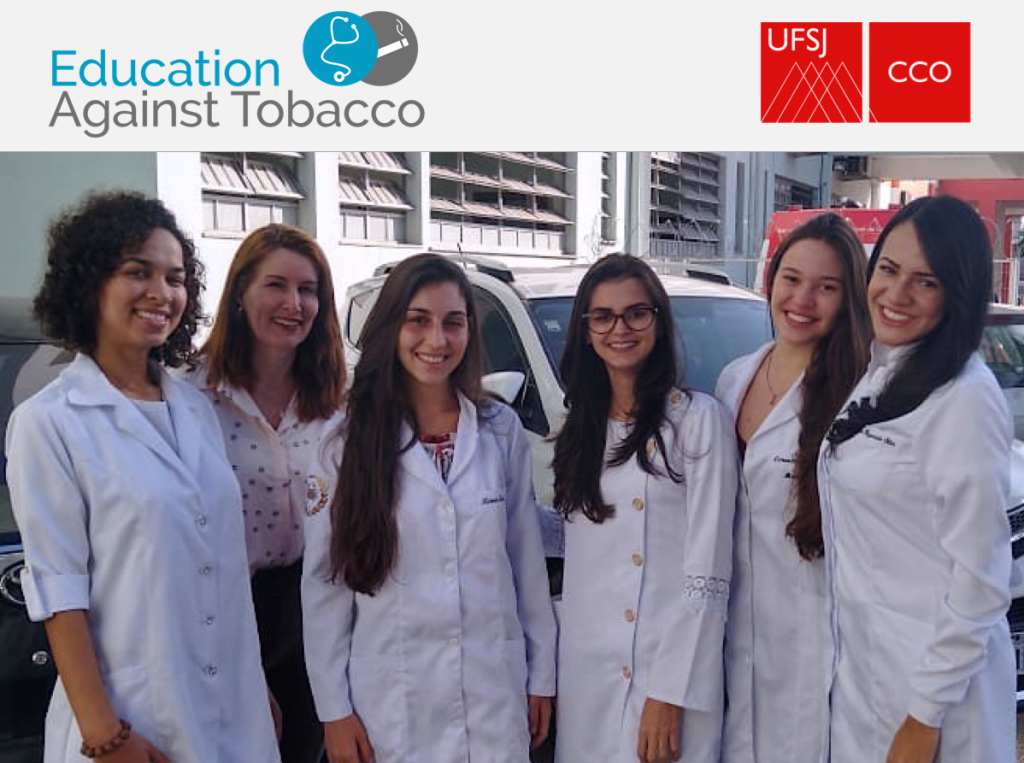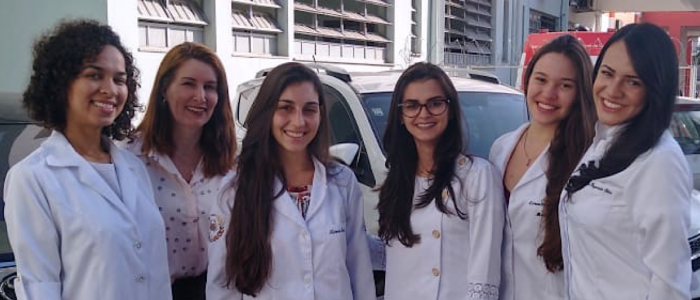EAT at UFSJ-CCO: first results and experience

EAT was launched at Federal University of São João del-Rei, Campus Centro Oeste (UFSJ-CCO) in May 2019. Our interview with Thamyres Figueredo Silva, who leads the local group, and with their academic mentor, Prof. Dr. Denia Azevedo, follows bellow.
1- Thamyres, please introduce yourself and tell us what motivated you to found EAT at UFSJ-CCO?
My name is Thamyres Figueredo Silva, 23, and I am a 4th year medical student at UFSJ-CCO. I am currently president of the UFSJ Oncology Interest Group (LANCO) and treasurer of the UFSJ Neurology and Neurosurgery Interest Group (Neuroliga). I am very interested in areas of the central nervous system as well as oncology. As smoking is one of the major causes of cancer worldwide, specially 90% of lung cancer cases, I looked for ways to try to reduce its incidence by means of educational actions. It was in this context that I got to know Education Against Tobacco (EAT) and then I worked to implement EAT at UFSJ-CCO.
2- Thamyres, what is the smoking prevalence in your city among adolescents?
There are no studies evaluating smoking prevalence in the city of Divinópolis. There is just estimated data released by the State Department of Health. As part of our EAT activities, we are considering to collect and release this data in the future.
3- Thamyres, could you tell us a bit about what EAT-UFSJ-CCO group has accomplished so far?
The whole team is very excited about the implementation of the EAT. From May to September (2019), we obtained obtained academic approval to carry out our activities as a community project, and we got logistical support from the Extension Department of our Medical School. We then went through a training phase of our team. Now, interventions are being carried out in public secondary schools. We realize that the adolescents know that smoking is bad for their health, but they don’t know how bad it is. The dynamics of the EAT come to fill this gap and show with examples, such as the facial aging app, the real harms of smoking in an applied and interactive way.
4- Prof. Dr. Denia Azevedo, how enthusiastic do you fell about the project and how do you think EAT contributes to the professional formation of medical students?
I am very interested in the project. I believe that this type of action, with an early approach and use of technology, is crucial to keep children and adolescents away from tobacco use. Besides that, as EAT is an educational initiative that falls under the umbrella of health promotion and disease prevention, the participation in this project substantially broadens the medical students’ vision for primary care and public health.
More information about EAT/UFSJ-CCO: https://educationtobacco.org/brazil-ufsj-cco
More information about EAT-Brazil: https://educationtobacco.org/brazil

